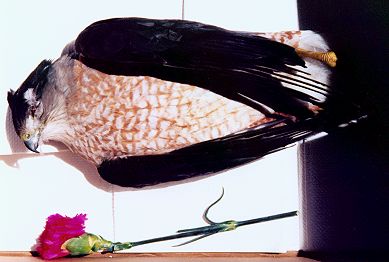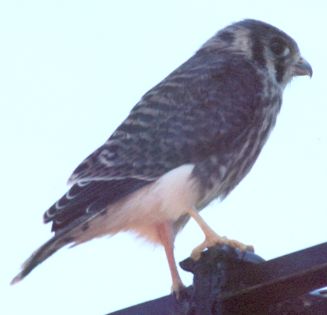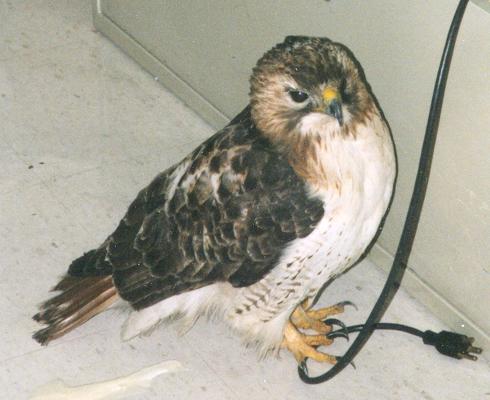| In addition to rescuing
birds in peril, CPF volunteers have picked up more than three dozen dead
raptors. Most of these have been either peregrines, or birds
initially reported as peregrines.
Identifying causes of death is critical
to improving our understanding of the threats facing peregrines and
other raptors, and we are always willing to pick up raptors which have
been killed. While not as gratifying as being able to help a bird
survive, it is nonetheless important work. |
|
Case file #21: dead Cooper's Hawk
found in Mississauga, May 1999

By the time we arrived, the hawk had been
placed in a "bird coffin" of sorts, complete
with a fresh flower. (Photo by Marcel Gahbauer) |
This adult Cooper's
Hawk was found dead near the Mississauga Executive
Centre in the spring of 1999. Office workers found
it at the base of their building. That, along with
the bird's broken neck, suggests that it suffered a
fatal collision with a window or wall. |
|
|



